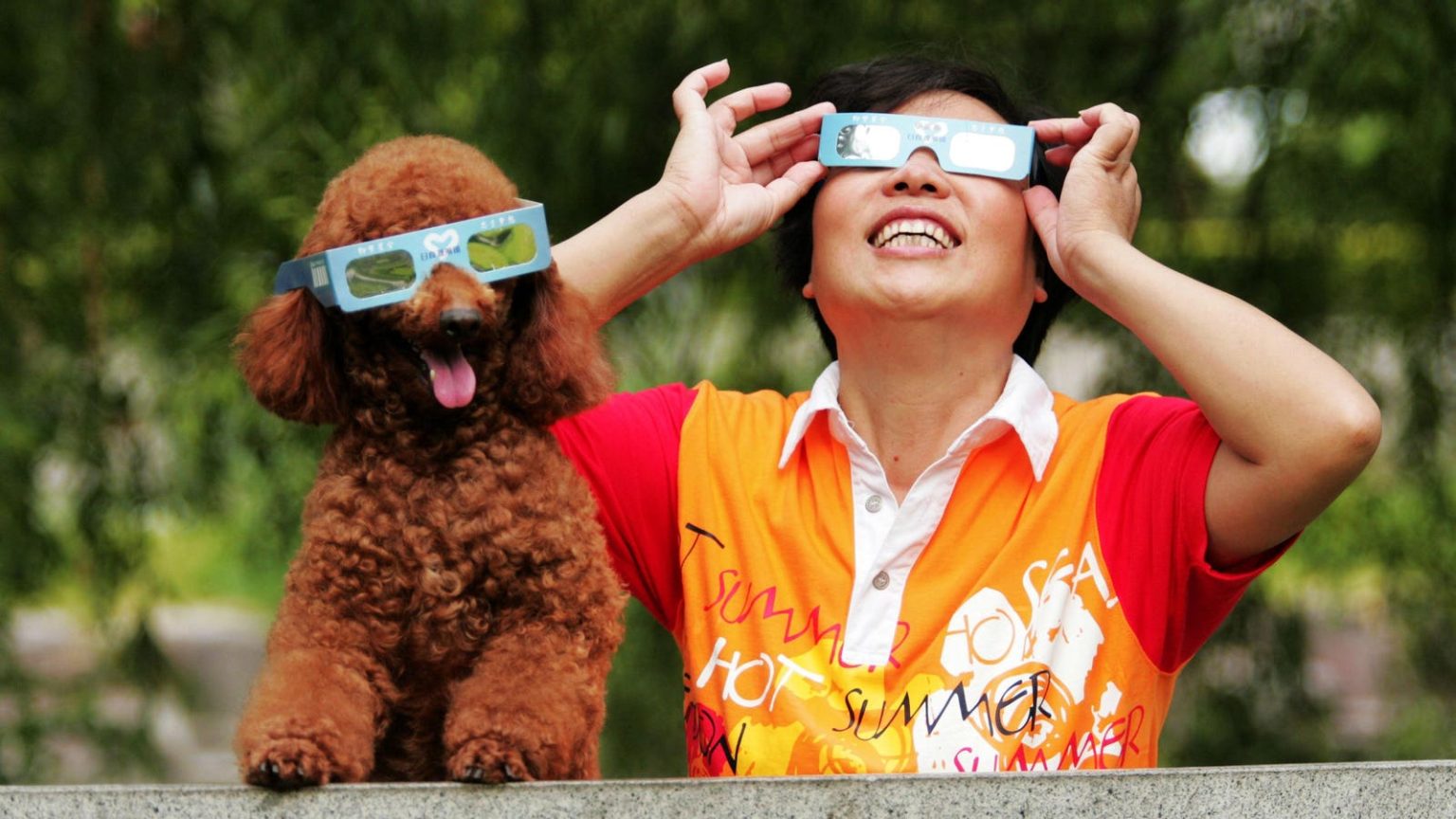Millions of people across North America are gearing up to witness the Great American Eclipse, a rare phenomenon that experts warn must be viewed safely to avoid potential eye damage. Ophthalmologist Avnish Deobhakta emphasized the importance of never looking directly at the sun without protection, as even a few seconds of exposure can lead to permanent damage. The safest way to watch the eclipse is through indirect viewing methods like a pinhole projector or viewing footage on a screen, according to clinical professor Aaron Zimmerman.
For those hoping to view the eclipse directly, eclipse glasses that meet ISO safety standards are a must. Eclipse safety expert Ralph Chou explained that these specially designed glasses filter out a small fraction of the sun’s light to protect the eyes. While children are not particularly vulnerable to sunlight, experts stressed the importance of supervising them and ensuring they wear eclipse glasses correctly. Children may not fully understand the dangers of looking at the sun, putting them at risk for eye damage.
During the brief period of totality, when the moon fully blocks the sun, it is safe to briefly remove protective eyewear to view the eclipse. However, glasses must be put back on as soon as the eclipse becomes partial again, and it is not safe to remove them at other points during the event. It is crucial to ensure that eclipse glasses are up to code and comply with ISO standards to protect the eyes from harm. Sunglasses, even multiple pairs, are not sufficient for viewing the eclipse safely.
While pets are generally safe during the eclipse, experts recommend keeping them indoors with the lights on to prevent confusion or fear-like responses to the changing daylight conditions. Animals may react to the eclipse differently, with some displaying behaviors such as preparing for sleep or looking for a place to hide. It is important to remain calm around pets during the eclipse to prevent any negative reactions. Animal behavior during eclipses is still not fully understood, with some species exhibiting strange behaviors such as mating or making unusual calls.
Researchers like Adam Hartstone-Rose are studying animal behavior during eclipses to better understand how they perceive and respond to these celestial events. The 2024 eclipse presents another opportunity for studying animal behavior, and researchers encourage anyone observing animals during the event to report their observations. The Solar Eclipse Safari project aims to gather data on how animals react during eclipses to further our understanding of their behavior in response to celestial events.


